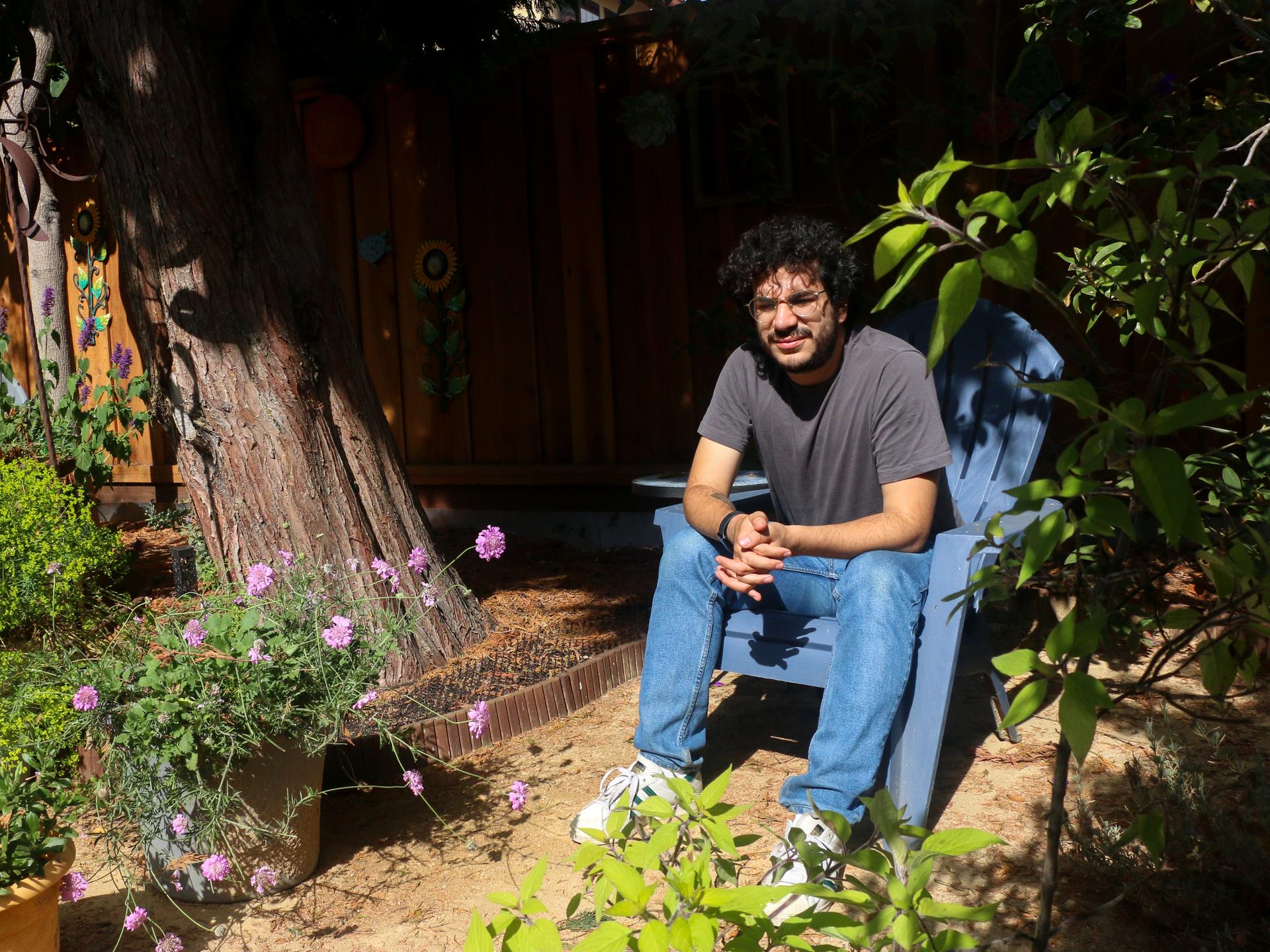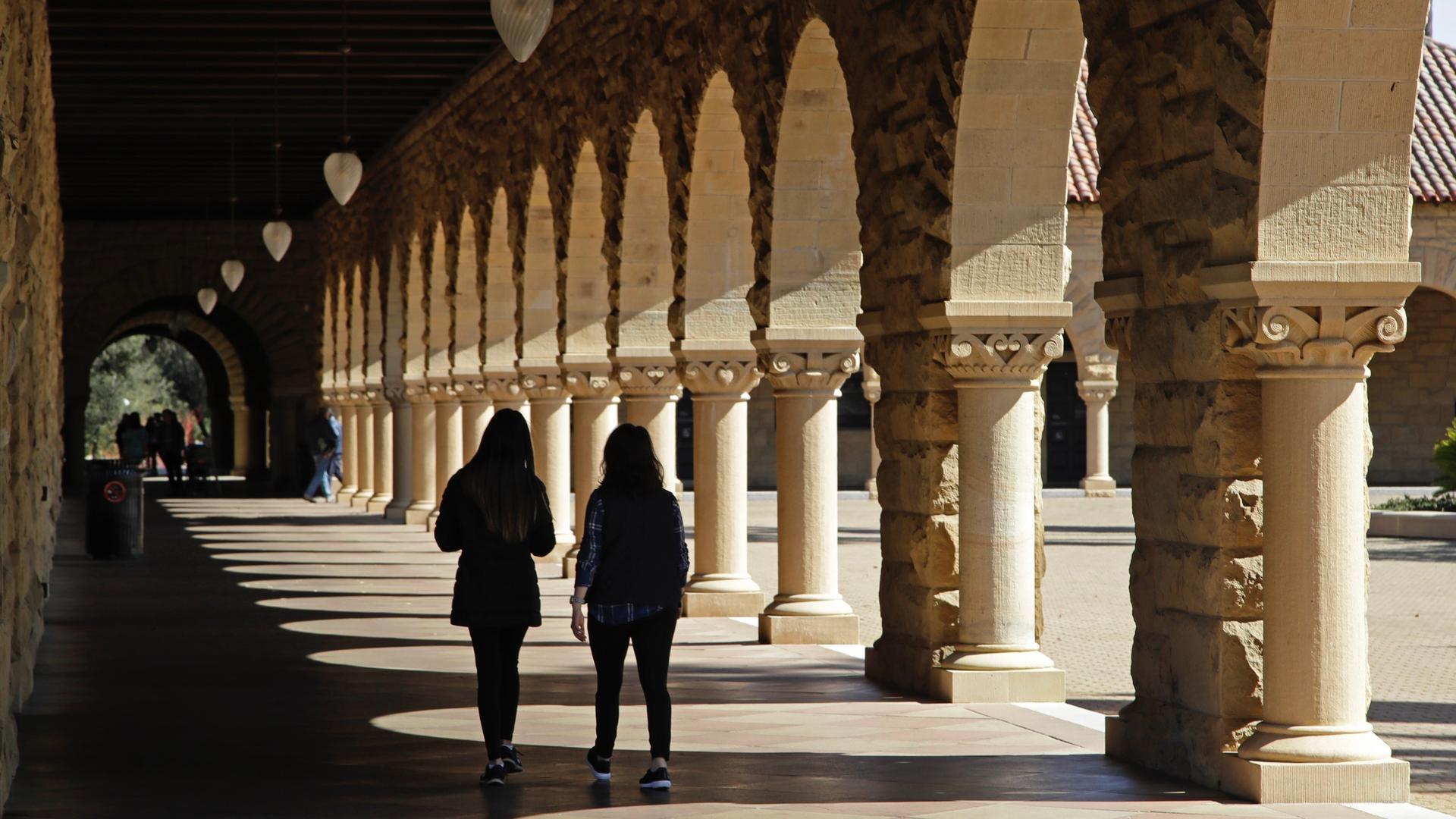Visa wait times for international students has many reconsidering US studies
American colleges and universities have long attracted some of the best talent in the world, but the US is no longer as appealing as it once was. International students’ enrollment numbers have been falling, even before the pandemic, and that’s worrying for the US schools that depend upon the full tuition they pay.
One of the hurdles to studying here is wait times for student visas, which, for some students, can be as long as a year.
Ibrahima Sow is a Belgian engineering student who got accepted into a master’s program in space robotics at Carnegie Mellon University last year. The program attracts top engineers from around the world, and Sow had all the qualifications, but one piece was missing: his student visa.
“My parents moved to Belgium when I was one,” Sow said. “So technically, in all of my immigration documents, passport, [it is] written that I was born in Guinea, a country in West Africa.”
Even though he’s a Belgian citizen, Sow suspects that being Muslim and Guinean-born posed even more delays. He said he was taken aback by some of the standard questions on the forms, such as “Are you a member or representative of a terrorist organization?”
“I am Muslim. I have a name like Ibrahima,” Sow said. “So, I was already expecting something weird.”
He also had to provide a travel history, listing every place he had been in the previous five years. And then he waited.
“I was always calling them, sending them emails,” Sow said. “When I send an email, I received always the same automated answer. … I tried everything.”
With no visa, Sow was tuning in remotely when his semester at Carnegie Mellon started. But, his professor told him he had to be there in person a week after classes began, or he’d be unenrolled. And that’s exactly what happened.
“I just graduated from my undergrad,” Sow recalled. “I was like, Okay, what do I do?”
These delays are well known among his friends back home. He said the delays have deterred some of his friends from applying to study in the US.
Juan Pablo Perez is a student from Bogota, Colombia. He had a similar experience — and it cost him. Last year, he was accepted into a master’s program at UC Berkeley. Perez and his wife booked and paid for plane tickets and paid thousands of dollars to secure an apartment in the Bay Area, which then sat empty for months as they waited.
“We were already paying rent here, in the most expensive place on Earth,” Perez said.

As the semester approached, Perez was so desperate to know his fate that he went to a fortune teller in Bogota. He asked her if he’d receive his visa in time to stay enrolled for the fall semester.
Jeremy Neufeld is a senior immigration fellow at the Institute For Progress (IFP), which describes itself as a non-partisan Washington DC economic think tank.
“Visa wait times are just completely broken,” Neufeld said.
He has been tracking visa processing times in consulates across the globe, and he says the system is simply not working. As a result, the US is falling behind in the race for talent.
“Wait times for visas across the board have exploded, partially because of COVID,” Neufeld said. “But they were also increasing before COVID-19.”
A few years ago, 80% of visa applicants could get appointments within three weeks, according to Neufeld.
“Today, wait times often exceed hundreds of days, and in some places, it can take years before you can even get an interview appointment,” he said.
To make matters worse, Neufeld said, the US is lagging in its adoption of technology.
“Our processing system is based on paper records, it’s based on in-person interviews,” he explained. “Our peer countries — Canada, the UK, Australia — have started to increase their experimentation with digital technology.”
Julie Stufft is the deputy assistant secretary for visa services at the State Department. She said the delays are due primarily to the closure of embassies and consulates during the early pandemic — an issue that has created a lasting “pandemic-related backlog.”
Stufft rejects the suggestion that the US is lagging in its technology and says that most of the visa application process is online.
“But US law does require that we do some activities in-person [and] explicitly states that we need to conduct an in-person interview and collect biometrics, in this case, fingerprints, which is, of course, also done in-person,” Stufft said.
She said it’s in the national interest of the US to have these international students come to the United States, both for diplomatic reasons and because the money they spend here is an important part of the US economy.
“But it is one of the requirements of a visa application — in any category, including students — to convince the consular officer that they will depart the United States after a temporary stay,” Stufft added.
Getting all the information to make those decisions is labor-intensive and takes time, and again, said Stufft, it’s the law.
Immigration advocates and universities are arguing that these delays of months, and even a year, are hurting the US in terms of competitiveness and that they are losing top talent to other countries, which numerous reports have found is happening.
“It’s costing the US billions of dollars a year in trade, research and business,” Neufeld said. “And it’s imposing costs on our credibility as an international partner.”
And Juan Pablo Perez? Well, the fortune teller told Perez he would get his visa just in time for him to start classes at Berkeley. And three days before the semester began, her prediction came true.
But that method is probably not endorsed by the State Department.
Max Harrison-Caldwell is a second-year student at the UC Berkeley Graduate School of Journalism. He spent the summer covering Bay Area news and culture at KALW in San Francisco.
